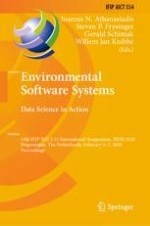2020 | OriginalPaper | Chapter
Dietary Intake Assessment: From Traditional Paper-Pencil Questionnaires to Technology-Based Tools
Authors : Elske M. Brouwer-Brolsma, Desiree Lucassen, Marielle G. de Rijk, Anne Slotegraaf, Corine Perenboom, Karin Borgonjen, Els Siebelink, Edith J. M. Feskens, Jeanne H. M. de Vries
Published in: Environmental Software Systems. Data Science in Action
Publisher: Springer International Publishing
Activate our intelligent search to find suitable subject content or patents.
Select sections of text to find matching patents with Artificial Intelligence. powered by
Select sections of text to find additional relevant content using AI-assisted search. powered by
